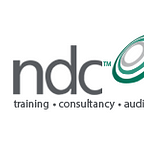The Importance of ISO Certifications for Infrastructure and Other Services
What Drives the World of ISO Certifications and Standardisations?
The world requires structure for thriving, and as a result, the process of streamlining tasks has formed its way in our daily personal and professional lives. In the field of taking care of global norms and regulations for quality services, product assurance and robustness.
The International Standard for Organisation (ISO) renders and manages these principles that abide by a methodological approach for upholding quality and descriptive parameters for various sectors. There are numerous ISO certifications and standards that exercise different internationally recognised procedures for companies that meet customer’s expectations.
Today, several clients look to select and choose a ISO general supplier for offering loyalty and creating a trust of services provided to end-users. The ISO certified products, usable goods and other requirements are essential for developing a brand image and visibility across platforms and popular mediums.
Clients need to incorporate ISO quality mechanisms for various reasons such as taking care of audited processes, documentations and their processing, amongst other behind-the-scenes workflows that display a proof of thorough work ethic and professionalism.
An ISO supplier is far more reliable and trustworthy than a non-ISO tender due to the reasons above.
As observed from a supplier’s perspective, having ISO certifications can lead to more refinements and improvements in services they offer to customers and other companies. Moreover, since ISO 45001, 9001, and others rely heavily on audited processes, the end products bear better quality standards than those made by regular processing.
Getting a certified ISO credential is a critical aspect of deploying successful products that can bring in more revenue for corporations. There’s an in-depth pathway that helps in getting ISO certifications for industries.
How to Get ISO Certifications?
The world of ISO revolves around conducting auditing of several procedures pertaining to establishing parameters for widespread quality standards.
Be it an ISO 45001 certification or any others like 9001, 27001, 37001 etc., one needs to have adequate auditing procedures set up for meeting the demands of consumers, stakeholders and other associates.
Currently, the ISO governing bodies consist of two major types of auditing that make it easier for getting this certification, include the following:-
- Internal Auditing
The internal audit is an essential feature of ISO certifications across the world. These processes are vital for assessing the effectiveness of a specific organisation’s quality management systems.
Internal audits demonstrate the agreement with planned systems, workflows, tasks and other junctures of firms. These are mandatory facets of granting ISO certifications that look after verification of different elements of code of practice.
The genius of internal auditing can be understood by the titular role it plays while exploring opportunities for improvement of products and also for offering feedback to the top decision-makers.
- External Auditing
The external audit is a culmination step prior to receiving different ISO certifications. As the name suggests, this type of auditing is conducted under the rightful supervision of an external auditor.
The external auditor is responsible for checking and analysing quality management system/s developed by organisations. The readings collected by external auditors have a decisive role in getting certification, or else they ask for corrective measures to be set up before receiving the certificate.
External auditing is a grueling process that demands organisations to be extra cautious to not falter at the last stage of an ISO certification. Corporations can conduct multiple dry runs to avoid messing up their quality management systems.
ISO certifications and standards are developed to incorporate a mixture of both internal and external auditing. Therefore having regular, systematic, routine auditing within corporations so as to mitigate any changes and challenges.
Getting ISO Certification: A Tricky or Smooth Process?
The entire process and approach of gaining an ISO certification requires commitment, understanding of internal procedures, setting up correct auditing schemas and bringing together both staff members and C-level executives.
An ISO certification is a long-term development that comprises different stages; it’s advisable to delegate employees’ tasks to achieve a collective objective. Therefore, any lapse in engagement and lack of enforcement by top-tier management can lead to negative repercussions.
Moreover, maintaining ISO certifications in a secluded environment such as that described above can result in near impossible credentials. Bureaucracy needs to be preached and professed for large corporations for proper implementation of ISO certifications.
For smaller companies and startups, training of staff personnel regarding different ISO procedures is a must for meeting a success. Establishing ISO certifications lead to better adjustments when changes take place in organisational topographies.
ISO: Paramount Aspect for Infrastructure and other Services
As understood from the article above, getting an ISO certification is critical for ensuring that companies deliver quality-assured products and services. There are different procedures required for successfully granting ISO certifications.
ISO certified end-products are developed by carrying out auditing under strict environments to avoid meeting failures. If done correctly, ISO certifications and credentials can skyrocket a company’s revenues and ROIs.
